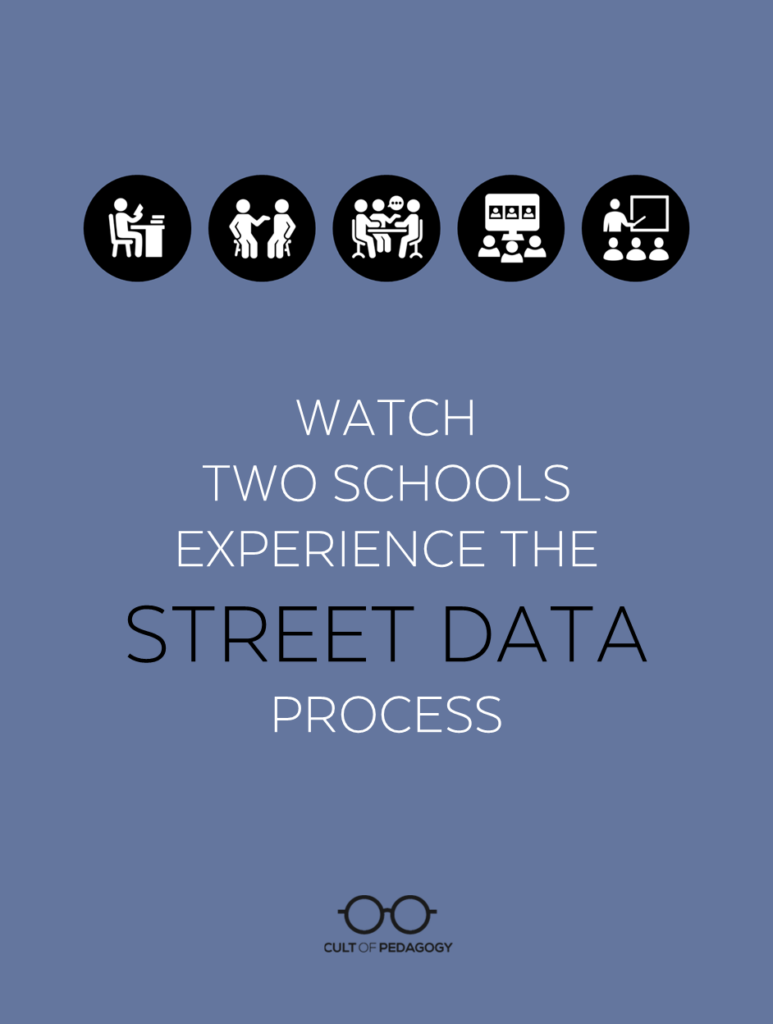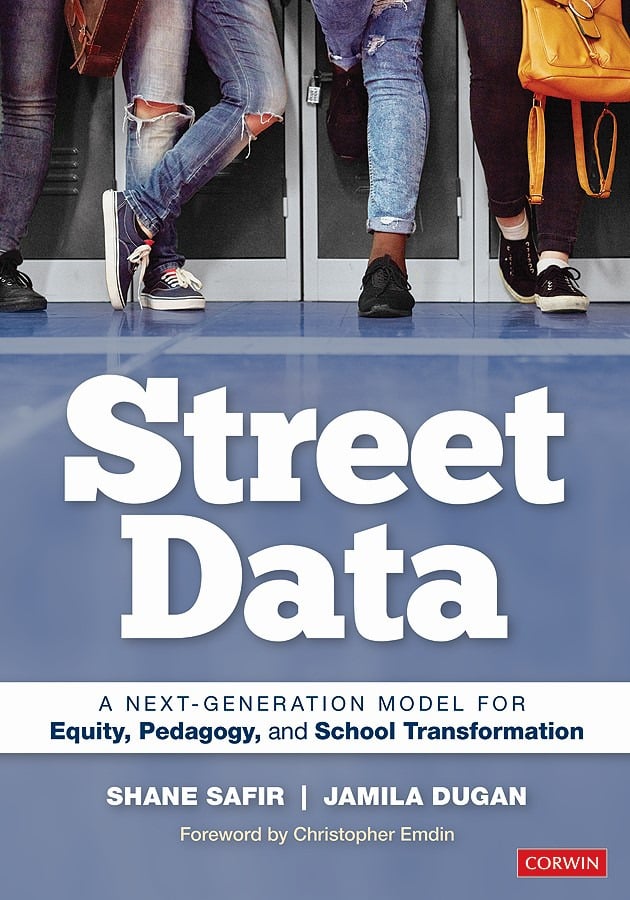
Listen to the interview with Shane Safir, Jamila Dugan, Araceli Leon, and Amanda Liebel (transcript):
This page contains Amazon Affiliate and Bookshop.org links. When you make a purchase through these links, Cult of Pedagogy gets a small percentage of the sale at no extra cost to you. What’s the difference between Amazon and Bookshop.org?
About a year and a half ago, I did an interview with two educators, Shane Safir and Jamila Dugan, about their new book, Street Data. The book is about the approach they had developed for helping schools transform. As soon as I read the book, I knew it was something I wanted all schools to hear about, because for the first time, I felt like I had stumbled on something that could actually solve some of the biggest problems we have with really meeting our students’ needs equitably and authentically.
What I absolutely love about the Street Data approach is that it’s kind of messy. It offers no quick fixes. Unlike so many other solutions that we propose for fixing the big, deep, complex problems that plague our education system, Street Data is completely different, because at its core, it relies on sitting down with the students and other stakeholders at the margins, those who typically never get a voice, and simply listening to them to learn what they need in order to be more successful at school.
And “successful” means something different in the Street Data lexicon: Instead of focusing on test scores, grades, and other metrics that we typically use to measure success, their criteria for success are much more holistic, with student well-being as the ultimate goal. And I don’t know if there has ever been another time in history when it’s been more apparent that many of our students are not well.
I was so blown away by the Street Data approach that after we finished our interview in October of 2021, I proposed that we take it further: As much as I felt that their book could help educators change schools in ways that they desperately needed to be changed, I worried that the book on its own may not be enough, that teachers who really wanted to do this work needed more support. While Jamila and Shane do work directly with schools through this process, they are only two people and can only reach so many schools by being physically with them. So I proposed that we find a few schools who would be willing to have their Street Data cycle videotaped, then share their process with the world.


And that’s exactly what we did. From February to November 2022, teachers from two schools — one in British Columbia in Canada, and another in San Francisco, California — met eight times over Zoom, going step-by-step through the Equity Transformation Cycle outlined in Street Data.
The result of that work is a nine-video series that we are releasing on YouTube today. The first six videos are available right now, and the remaining three will be released over the next few weeks. The fastest way to find the playlist is through the URL cultofpedagogy.com/streetdataseries.
My hope in producing this series is that groups of educators will use it in conjunction with the book to work through the equity transformation cycle at your own school.
In the podcast interview above, I talk about the series with Shane and Jamila, along with two teachers, Araceli Leon and Amanda Liebel, teachers who participated in the project.
The video below introduces the series:
Learn More
Find the full video series at cultofpedagogy.com/streetdataseries.
Find Shane Safir at shanesafir.com or on Twitter at @shanesafir.
Find Jamila Dugan at jamiladugan.com or on Twitter at @jamiladugan.
Join our mailing list and get weekly tips, tools, and inspiration that will make your teaching more effective and fun. You’ll get access to our members-only library of free downloads, including 20 Ways to Cut Your Grading Time in Half, the e-booklet that has helped thousands of teachers save time on grading. Over 50,000 teachers have already joined—come on in.





